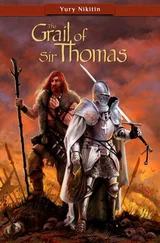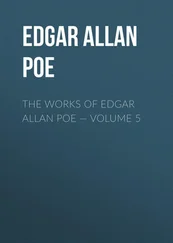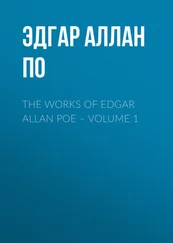Thomas Browne - The Works of Sir Thomas Browne, Volume 3
Здесь есть возможность читать онлайн «Thomas Browne - The Works of Sir Thomas Browne, Volume 3» — ознакомительный отрывок электронной книги совершенно бесплатно, а после прочтения отрывка купить полную версию. В некоторых случаях можно слушать аудио, скачать через торрент в формате fb2 и присутствует краткое содержание. ISBN: , Жанр: foreign_antique, foreign_prose, на английском языке. Описание произведения, (предисловие) а так же отзывы посетителей доступны на портале библиотеки ЛибКат.
- Название:The Works of Sir Thomas Browne, Volume 3
- Автор:
- Жанр:
- Год:неизвестен
- ISBN:http://www.gutenberg.org/ebooks/39962
- Рейтинг книги:4 / 5. Голосов: 1
-
Избранное:Добавить в избранное
- Отзывы:
-
Ваша оценка:
- 80
- 1
- 2
- 3
- 4
- 5
The Works of Sir Thomas Browne, Volume 3: краткое содержание, описание и аннотация
Предлагаем к чтению аннотацию, описание, краткое содержание или предисловие (зависит от того, что написал сам автор книги «The Works of Sir Thomas Browne, Volume 3»). Если вы не нашли необходимую информацию о книге — напишите в комментариях, мы постараемся отыскать её.
The Works of Sir Thomas Browne, Volume 3 — читать онлайн ознакомительный отрывок
Ниже представлен текст книги, разбитый по страницам. Система сохранения места последней прочитанной страницы, позволяет с удобством читать онлайн бесплатно книгу «The Works of Sir Thomas Browne, Volume 3», без необходимости каждый раз заново искать на чём Вы остановились. Поставьте закладку, и сможете в любой момент перейти на страницу, на которой закончили чтение.
Интервал:
Закладка:
A story there passeth of an Indian King, that sent unto Alexander a fair woman fed with Aconites and other poysons, with this intent, either by converse or copulation complexionally to destroy him. For my part, although the design were true, I should have doubted the success. For, though it be possible that poysons may meet with tempers whereto they may become Aliments, and we observe from fowls that feed on fishes, and others fed with garlick and onyons, that simple aliments are not alwayes concocted beyond their vegetable qualities; and therefore that even after carnall conversion, poysons may yet retain some portion of their natures; yet are they so refracted, cicurated and subdued, as not to make good their first and destructive malignities. And therefore the Stork that eateth Snakes, and the Stare that feedeth upon Hemlock, though no commendable aliments, are not destructive poysons. For, animals that can innoxiously digest these poysons, become antidotall unto the poyson digested. And therefore whether their breath be attracted, or their flesh ingested, the poysonous reliques go still along with their Antidote: whose society will not permit their malice to be destructive. And therefore also animals that are not mischieved by poysons which destroy us, may be drawn into Antidote against them; the blood or flesh of Storks against the venom of Serpents, the Quail against Hellebore, and the diet of Starlings against the drought of Socrates . Hemlock. Upon like grounds are some parts of Animals Alexipharmacall unto others; and some veins of the earth, and also whole regions, not only destroy the life of venemous creatures, but also prevent their productions. For though perhaps they contain the seminals of Spiders and Scorpions, and such as in other earths by suscitiation of the Sun may arise unto animation; yet lying under command of their Antidote, without hope of emergency they are poysoned in their matrix by powers easily hindring the advance of their originals, whose confirmed forms they are able to destroy.
5. The story of the wandring Jew is very strange, and will hardly obtain belief; yet is there a formall account thereof set down by Mathew Paris , from the report of an Armenian Bishop; who came into this kingdom about four hundred years ago, and had often entertained this wanderer at his Table. That he was then alive, was first called Cartaphilus , was keeper of the Judgement Hall, whence thrusting out our Saviour with expostulation of his stay, was condemned to stay untill his return;Vade quid moraris? Ego vado, tu autem morare donec venio. was after baptized by Ananias , and by the name of Joseph ; was thirty years old in the dayes of our Saviour, remembred the Saints that arised with him, the making of the Apostles Creed, and their several peregrinations. Surely were this true, he might be an happy arbitrator in many Christian controversies; but must impardonably condemn the obstinacy of the Jews, who can contemn the Rhetorick of such miracles, and blindly behold so living and lasting conversions.
6. Clearer confirmations must be drawn for the history of Pope Joan , who succeeded Leo the fourth, and preceeded Benedict the third, then many we yet discover. And since it is delivered with aiunt and ferunt by many;Confutatio fabulæ de Joanna Papissa cum Nihusio. since the learned Leo Allatius hath discovered, that ancient copies of Martinus Polonus , who is chiefly urged for it, had not this story in it; since not only the stream of Latine Historians have omitted it, but Photius the Patriarch, Metrophanes Smyrnæus , and the exasperated Greeks have made no mention of it, but conceded Benedict the third to bee Successor unto Leo the fourth; he wants not grounds that doubts it.
Many things historicall which seem of clear concession, want not affirmations and negations, according to divided pens: as is notoriously observable in the story of Hildebrand or Gregory the seventh, repugnantly delivered by the Imperiall and Papal party. In such divided records partiality hath much depraved history, wherein if the equity of the reader do not correct the iniquity of the writer, he will be much confounded with repugnancies, and often find in the same person, Numa and Nero . Of Luther, Calvin, Beza. In things of this nature moderation must intercede; and so charity may hope, that Roman Readers will construe many passages in Bolsech , Fayus , Schlusselberg and Cochlæus .
7. Every ear is filled with the story of Frier Bacon ,Rog. Bacon. minor ita. Oxoniensis vir doctissimus. that made a brazen head to speak these words, Time is , Which though there want not the like relations, is surely too literally received, and was but a mystical fable concerning the Philosophers great work, wherein he eminently laboured: implying no more by the copper head, then the vessel wherein it was wrought, and by the words it spake, then the opportunity to be watched, about the Tempus ortus , or birth of the mystical child, or Philosophical King of Lullius : the rising of the Terra foliata of Arnoldus , when the earth sufficiently impregnated with the water, ascendeth white and splendent. Which not observed, the work is irrecoverably lost; according to that of Petrus Bonus . Margarita pretiosa. Ibi est operis perfectio aut annihilatio; quoniam ipsa die, immo horâ, oriuntur elementa simplicia depurata, quæ egent statim compositione, antequam volent ab igne.
Now letting slip this critical opportunity, he missed the intended treasure. Which had he obtained, he might have made out the tradition of making a brazen wall about England . That is, the most powerfull defence, and strongest fortification which Gold could have effected.
8. Who can but pitty the vertuous Epicurus , who is commonly conceived to have placed his chief felicity in pleasure and sensual delights, and hath therefore left an infamous name behind him? How true, let them determine who read that he lived seventy years, and wrote more books then any Philosopher but Chrysippus , and no less then three hundred, without borrowing from any Author. That he was contented with bread and water, and when he would dine with Jove , and pretend unto epulation, he desired no other addition then a piece of Cytheridian cheese. That shall consider the words of Seneca, Non dico, quod pleriq; nostrorum, sectam Epicuri flagitiorum magistrum esse: sed illud dico, malè audit infamis est, et immerito . Or shall read his life, his Epistles, his Testament in Laertius , who plainly names them Calumnies, which are commonly said against them.
The ground hereof seems a mis-apprehension of his opinion, who placed his Felicity not in the pleasures of the body, but the mind, and tranquility thereof, obtained by wisdom and vertue, as is clearly determined in his Epistle unto Menœceus . Now how this opinion was first traduced by the Stoicks , how it afterwards became a common belief, and so taken up by Authors of all ages, by Cicero , Plutarch , Clemens , Ambrose and others, De vita et moribus Epicuri.the learned Pen of Gassendus hath discovered.
CHAPTER XVIII
More briefly of some others
Other relations there are, and those in very good Authors, which though we do not positively deny, yet have they not been unquestioned by some, and at least as improbable truths have been received by others. Unto some it hath seemed incredible what Herodotus reporteth of the great Army of Xerxes , that drank whole rivers dry. And unto the Author himself it appeared wondrous strange, that they exhausted not the provision of the Countrey, rather then the waters thereof. For as he maketh the account, and Budeus de Asse correcting the mis-compute of Valla , delivereth it; if every man of the Army had had a chenix of Corn a day, that is, a sextary and half; or about two pints and a quarter, the Army had daily expended ten hundred thousand and forty Medimna’s, or measures containing six Bushels. Which rightly considered, the Abderites had reason to bless the Heavens, that Xerxes eat but one meal a day; and Pythius his noble Host, might with less charge and possible provision entertain both him and his Army. And yet may all be salved, if we take it hyperbolically, as wise men receive that expression in Job , concerning Behemoth or the Elephant; Behold, he drinketh up a river and hasteth not, he trusteth that he can draw up Jordan into his mouth.
Читать дальшеИнтервал:
Закладка:
Похожие книги на «The Works of Sir Thomas Browne, Volume 3»
Представляем Вашему вниманию похожие книги на «The Works of Sir Thomas Browne, Volume 3» списком для выбора. Мы отобрали схожую по названию и смыслу литературу в надежде предоставить читателям больше вариантов отыскать новые, интересные, ещё непрочитанные произведения.
Обсуждение, отзывы о книге «The Works of Sir Thomas Browne, Volume 3» и просто собственные мнения читателей. Оставьте ваши комментарии, напишите, что Вы думаете о произведении, его смысле или главных героях. Укажите что конкретно понравилось, а что нет, и почему Вы так считаете.












